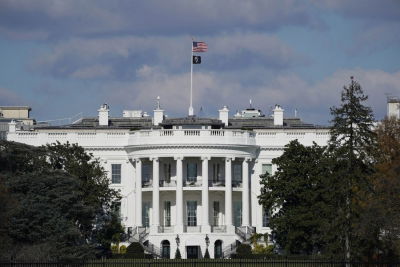America
White House Advances Gaza Ceasefire and Hostage Talks After Israel-Hezbollah Clash

August 27:
Following a heavy weekend of fighting between Israel and Hezbollah, an organization backed by Iran, the White House announced that negotiators are still trying to reach an agreement to end the fighting in Gaza and free Israeli hostages. Over the weekend, mediators in Cairo discussed "final details" of a possible agreement, including the names of prisoners that would be exchanged as part of the contract, according to a senior US official familiar with the talks. The talks had made progress.
The person added that negotiators in Egypt's capital are currently talking about the "nuts and bolts" of a deal, but that this does not mean a final agreement will be reached anytime soon. John Kirby, a spokesman for the White House National Security Council, stated on Monday that representatives from both parties, including Hamas, are present in the negotiations, and that they have progressed to a more detailed stage in their pursuit of a settlement.
A member of Hamas's political bureau named Bassem Naim, however, stated that the group will not be taking part in Monday's meetings.
He spoke to Al Arabi TV and restated Hamas's stance, saying that the group is "ready to negotiate what was agreed upon" in a proposal from July 2, but that it will "not accept the conditions that [Israel Prime Minister Benjamin] Netanyahu added."
On October 7th, 2018, Hamas carried out a huge terror attack on Israel, murdering 1200 people and capturing 250 hostages, of which more than 100 remain in captivity.
A robust counteroffensive by Israel against Hamas in the Gaza Strip ensued. However, there have been concerns over civilian fatalities in the Israeli assault. The Gaza Health Ministry reports that more than forty thousand Palestinians have lost their lives in the Israeli offensive.
Regardless of the outcome of any negotiations, Netanyahu has maintained that the conflict in Gaza will go on until a "total victory" against Hamas is achieved. Members of his own defense minister's family and other high-ranking Israeli officials have cast doubt on that goal, as have relatives of Hamas prisoners.
A middle ground between Netanyahu's and Hamas' demands has been sought after by negotiators for months. According to CNN's reporting citing the official, the remaining issues are considered as potentially solvable, despite their significance.
The presence of Israeli forces in the Philadelphi corridor, which is located on the Egyptian side of the Gaza border, is one point of contention. In the early stages of a ceasefire agreement, Hamas is opposed to Israel's plan to keep forces stationed there.
The current debate is focused on which parts of the Philadelphi corridor qualify as densely populated versus unpopulated, where the IDF will maintain a presence in the first phase of an agreement, according to the US official. The current proposal calls for an Israeli military withdrawal from "densely populated areas" in Gaza.
In a public statement, the Hamas negotiating delegation left Cairo on Sunday, restating the group's demands: "a permanent ceasefire, a complete withdrawal from the Gaza Strip, the freedom of return of residents to their areas, relief and reconstruction, and a serious exchange deal."
Although Hamas has made public statements to the contrary, the US source stated that "negotiators believe Hamas may be more flexible on an Israeli presence during the first phase of an agreement."



































